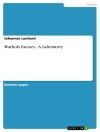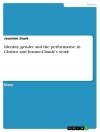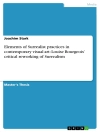In ‘Three Letters and an Essay by John Ruskin 1836-1841. Found in his tutor’s desk’, readers are offered a unique insight into the early writings of John Ruskin, a prominent English art critic and social thinker of the 19th century. The book contains a combination of personal letters and an essay written by Ruskin during a formative period of his life, showcasing his evolving literary style and intellectual pursuits. The letters provide a glimpse into his early thoughts on art, society, and morality, while the essay delves into his developing ideas on aesthetics and culture. This collection is a valuable resource for scholars and enthusiasts interested in tracing the intellectual development of a seminal figure in Victorian literature and art criticism. John Ruskin’s upbringing in a wealthy and educated family, coupled with his early exposure to art and literature, undoubtedly influenced his later career as a critic and social commentator. The letters and essay included in this book offer a glimpse into the formative years of a thinker whose ideas would have a lasting impact on the fields of art and social theory. Ruskin’s distinctive voice and keen observations are evident in these early writings, laying the groundwork for his later influential works. Readers interested in the early intellectual development of John Ruskin, as well as those curious about the intersections of art, literature, and society in 19th-century England, will find ‘Three Letters and an Essay by John Ruskin 1836-1841. Found in his tutor’s desk’ to be a compelling and insightful read.
Sobre o autor
John Ruskin (1819–1900) was an English art critic, social thinker, poet, and artist, widely acknowledged for his influence on the aesthetics and literary culture of the Victorian era. Known for his incisive critiques of industrial capitalism and his passionate advocacy for naturalism and craftmanship, Ruskin’s prolific writing extended across a broad swath of interests, including nature, art, architecture, politics, and education. His intricate prose and richness of thought spurred both appreciation and controversy. ‘Three Letters and an Essay by John Ruskin 1836-1841. Found in his tutor’s desk, ‘ encapsulates early expressions of Ruskin’s emerging literary and ethical perspectives (Ruskin, 1850). His seminal works, such as ‘Modern Painters’ (1843–60), ‘The Stones of Venice’ (1851–53), and ‘Unto This Last’ (1860), solidify his reputation as a profound and original thinker. Ruskin’s literary style melds descriptive acumen with a moral urgency, advocating for beauty and truth not just in art, but as the foundation of society itself. He engaged readers through elaborate metaphors and a personal tone that connected aesthetic judgment to the fabric of human values. His profound impact is reflected in the appreciation of subsequent authors, artists, and critics, confirming his status as a guiding intellectual force of his time.












